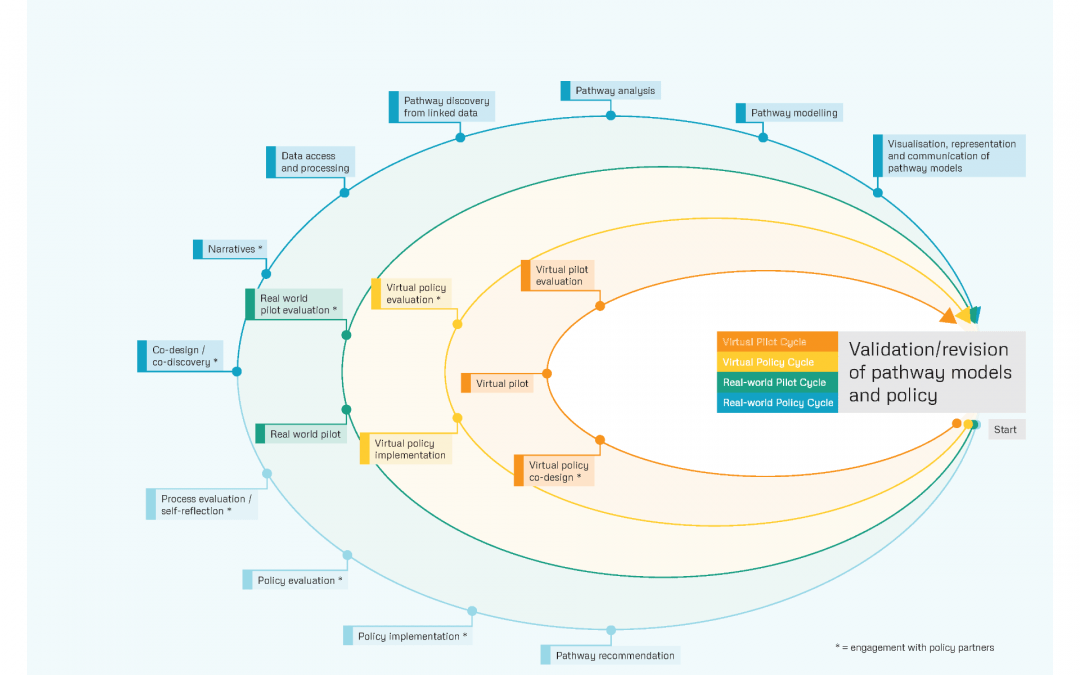Michael O’Sullivan, Suzanne Woodward, Jennifer Curtin
University of Auckland
Introduction
Wicked problems are described as “inherently intractable late-industrial problems associated with modern social planning” (Farrell, 2011). They include many of the problems faced by New Zealand society today, including how to reduce homelessness and inequity, and ways to mitigate the impact of damp social housing. To tackle wicked problems, transdisciplinary approaches that provide evidence-informed cross-sector policy are needed.
Key Recommendations
This briefing suggests the following approach for policy with impact:
- Co-design should be an integral part of policy modelling
- Use narratives and linked data to identify social trajectories
- Examine how current policy identifies social pathways
- Model the interaction between trajectories and pathways, with a focus on (potential) turning points
- Overlay wellbeing measures to enable comprehensive policy evaluation
- Evaluate current and (potential) future policy to find high impact combinations

